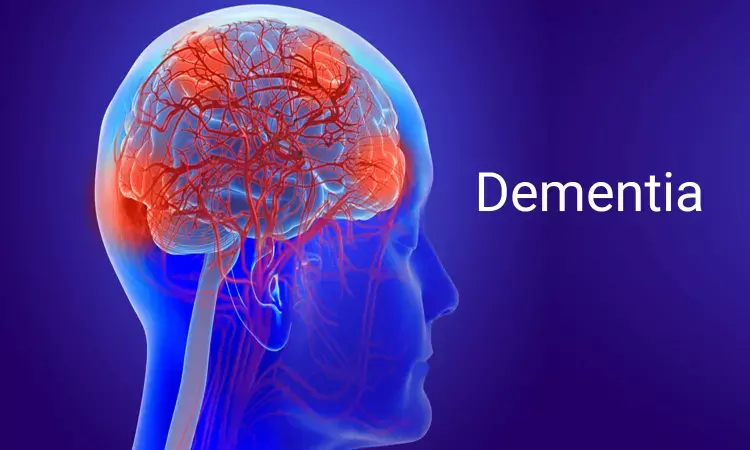- Home
- Medical news & Guidelines
- Anesthesiology
- Cardiology and CTVS
- Critical Care
- Dentistry
- Dermatology
- Diabetes and Endocrinology
- ENT
- Gastroenterology
- Medicine
- Nephrology
- Neurology
- Obstretics-Gynaecology
- Oncology
- Ophthalmology
- Orthopaedics
- Pediatrics-Neonatology
- Psychiatry
- Pulmonology
- Radiology
- Surgery
- Urology
- Laboratory Medicine
- Diet
- Nursing
- Paramedical
- Physiotherapy
- Health news
- Fact Check
- Bone Health Fact Check
- Brain Health Fact Check
- Cancer Related Fact Check
- Child Care Fact Check
- Dental and oral health fact check
- Diabetes and metabolic health fact check
- Diet and Nutrition Fact Check
- Eye and ENT Care Fact Check
- Fitness fact check
- Gut health fact check
- Heart health fact check
- Kidney health fact check
- Medical education fact check
- Men's health fact check
- Respiratory fact check
- Skin and hair care fact check
- Vaccine and Immunization fact check
- Women's health fact check
- AYUSH
- State News
- Andaman and Nicobar Islands
- Andhra Pradesh
- Arunachal Pradesh
- Assam
- Bihar
- Chandigarh
- Chattisgarh
- Dadra and Nagar Haveli
- Daman and Diu
- Delhi
- Goa
- Gujarat
- Haryana
- Himachal Pradesh
- Jammu & Kashmir
- Jharkhand
- Karnataka
- Kerala
- Ladakh
- Lakshadweep
- Madhya Pradesh
- Maharashtra
- Manipur
- Meghalaya
- Mizoram
- Nagaland
- Odisha
- Puducherry
- Punjab
- Rajasthan
- Sikkim
- Tamil Nadu
- Telangana
- Tripura
- Uttar Pradesh
- Uttrakhand
- West Bengal
- Medical Education
- Industry
Anticholinergic may agents increase dementia risk: Study

USA: The use of anticholinergic agents for >3 months increases dementia risk by about 46% compared to nonuse, suggests a recent study in the journal Neurourology and Urodynamics. This relationship was also seen with the use of antimuscarinics, likely due to their high anticholinergic activity.
Anticholinergic drugs are prescribed for various conditions including those occurring in patients at high risk for dementia or cognitive impairment, such as people over 65 years of age. There is a growing evidence that long-term treatment with anticholinergic drugs increases dementia risk. This has led to recommendations to limit the use of these drugs. Paul N. Mudd Jr, Urovant Sciences, Inc., Durham, North Carolina, USA, and colleagues therefore conducted this systematic literature review and meta‐analysis to assess the impact of ≥3 months of exposure to anticholinergics as a class on the risk of mild cognitive impairment, dementia, and change in cognitive function. They also evaluated the impact of anticholinergic agents specifically used for the treatment of overactive bladder.
The researchers conducted a systematic literature review for identifying English language articles that evaluated the impact of anticholinergic use for ≥3 months on dementia or cognitive function in adult patients.
A total of 2122 records were identified. Out of those, 21 studies underwent qualitative synthesis and 6 reported endpoints relevant for inclusion in a meta-analysis assessing the risk of incident dementia.
Key findings of the study include:
- The overall rate ratio for incident dementia was 1.46 (n = 6).
- The risk of incident dementia increased with increasing exposure (n = 3).
- In addition, two studies from the meta-analysis reported an increased risk of dementia with ≥3 months of use of bladder antimuscarinics (adjusted odds ratios ranged from 1.21 to 1.65, depending on exposure category).
"Whether the use of anticholinergic agents is a reversible risk factor is an important area of future research; however, given the substantially increased risk of developing dementia associated with anticholinergic agents, physicians should carefully weigh the risk versus the potential benefits before prescribing," concluded the authors.
The study, "Increased risk of incident dementia following use of anticholinergic agents: A systematic literature review and meta‐analysis," is published in the journal Neurourology and Urodynamics.
DOI: https://onlinelibrary.wiley.com/doi/10.1002/nau.24536
Dr Kamal Kant Kohli-MBBS, DTCD- a chest specialist with more than 30 years of practice and a flair for writing clinical articles, Dr Kamal Kant Kohli joined Medical Dialogues as a Chief Editor of Medical News. Besides writing articles, as an editor, he proofreads and verifies all the medical content published on Medical Dialogues including those coming from journals, studies,medical conferences,guidelines etc. Email: drkohli@medicaldialogues.in. Contact no. 011-43720751


